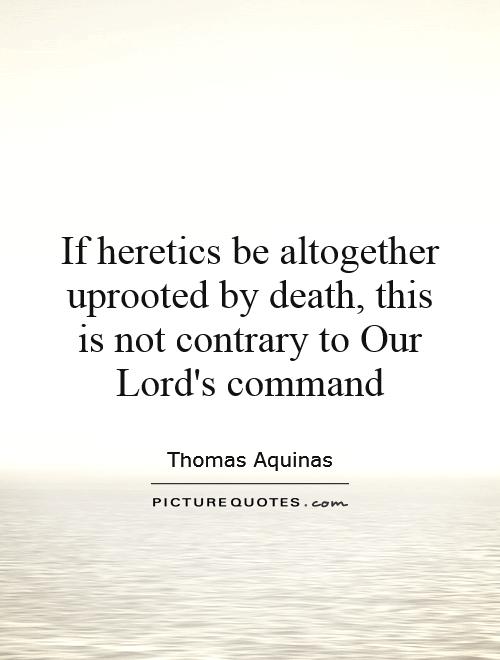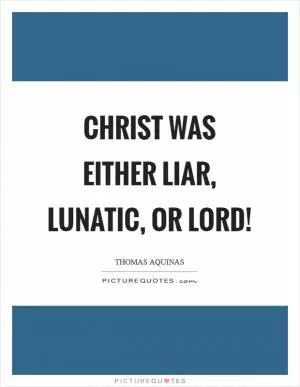If heretics be altogether uprooted by death, this is not contrary to Our Lord's command

If heretics be altogether uprooted by death, this is not contrary to Our Lord's command
Thomas Aquinas, a prominent theologian and philosopher of the medieval period, is often cited for his views on heresy and the punishment of heretics. In his work, Aquinas argues that the eradication of heretics through death is not contrary to the command of the Lord. This controversial stance has sparked debate among scholars and theologians for centuries.Aquinas believed that heresy was a grave sin that threatened the unity and stability of the Church. He viewed heretics as individuals who spread false teachings and led others astray from the true faith. In his view, the eradication of heretics was necessary to protect the integrity of the Church and prevent the spread of false doctrines.
Aquinas drew upon biblical passages to support his argument that the punishment of heretics by death was justified. He referenced passages such as Exodus 22:20, which states, "Whoever sacrifices to any god other than the Lord must be destroyed." Aquinas interpreted this passage as a command to eliminate those who promote false beliefs and worship false gods.
Furthermore, Aquinas believed that the punishment of heretics by death could serve as a deterrent to others who may be tempted to stray from the true faith. By eliminating heretics, Aquinas argued that the Church could maintain its purity and prevent the corruption of its teachings.
Despite his controversial views on the punishment of heretics, Aquinas also emphasized the importance of mercy and forgiveness. He believed that heretics should be given the opportunity to repent and return to the true faith before facing punishment. Aquinas saw the eradication of heretics as a last resort, to be used only when all other means of correction had failed.












 Friendship Quotes
Friendship Quotes Love Quotes
Love Quotes Life Quotes
Life Quotes Funny Quotes
Funny Quotes Motivational Quotes
Motivational Quotes Inspirational Quotes
Inspirational Quotes